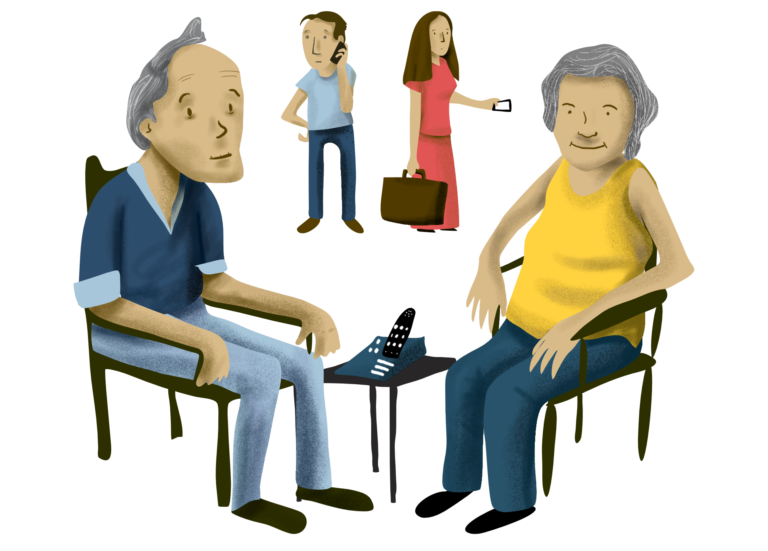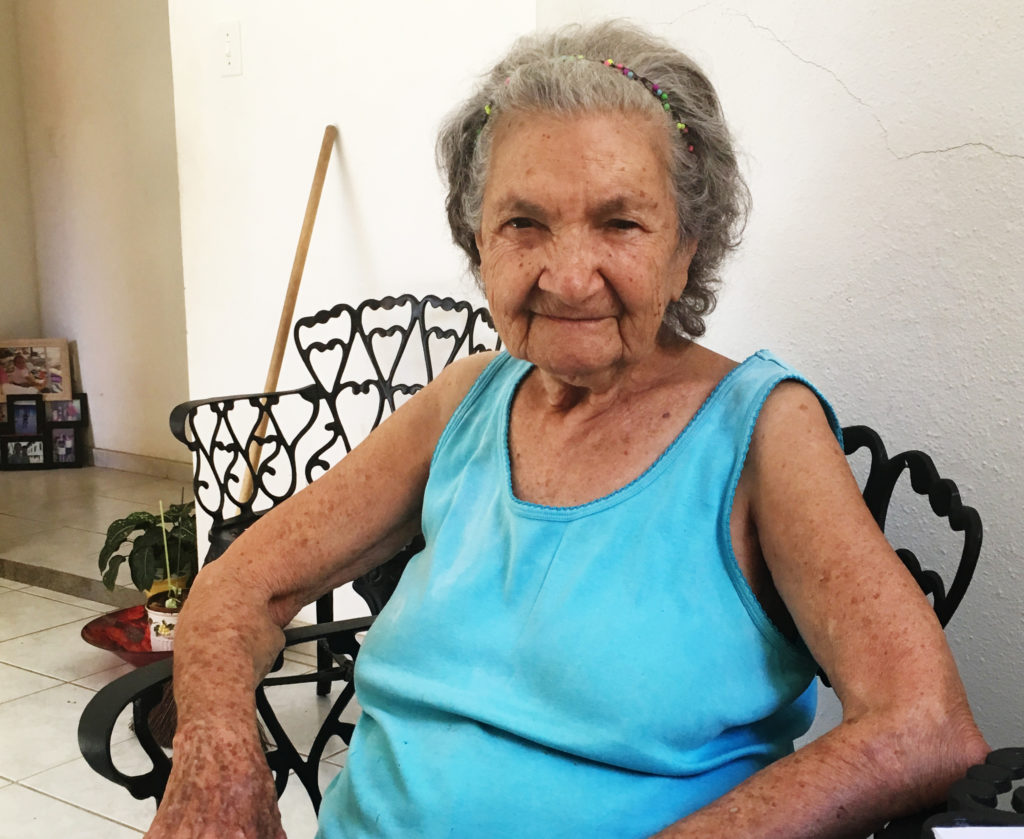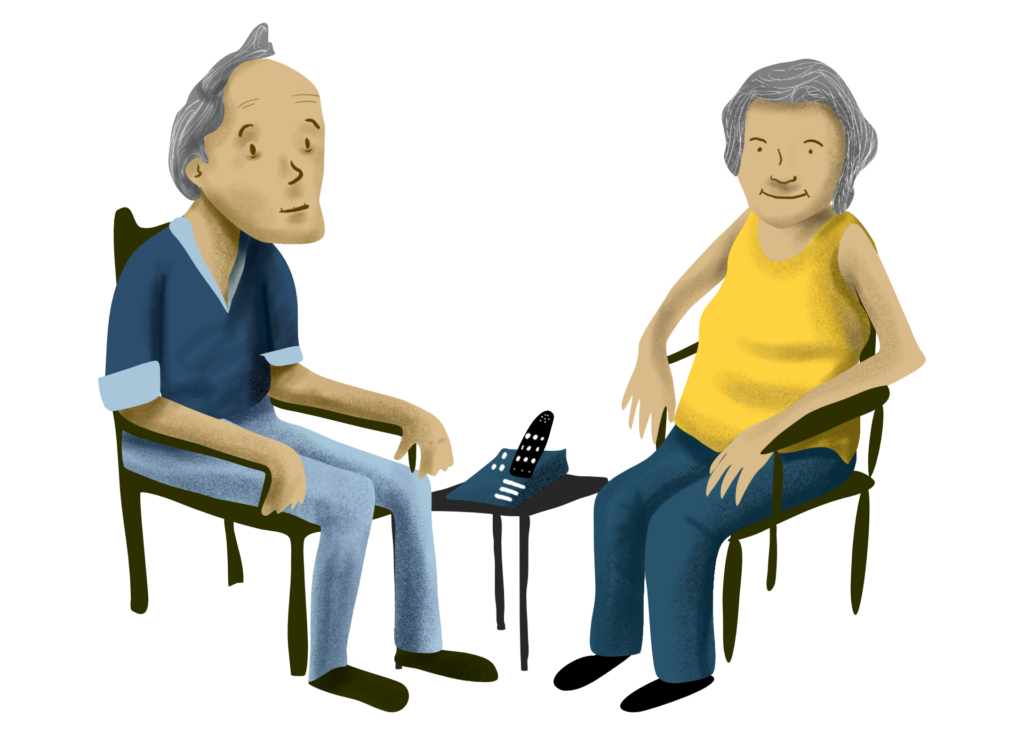
Brazilian families,
transnational (im)mobilities and care
Dora Sampaio
Today, an estimated 3.1 million Brazilians live abroad. Historically a country of immigration, not emigration, nowadays Brazil counts a large number of its citizens spread around the world. The United States and the United Kingdom rank among the top destinations, but precise figures are difficult to determine given the high levels of migrant undocumentation. Migrants’ parents typically stay and age in Brazil, in some cases with the added responsibility of caring for grandchildren. This raises the question of who cares for the ageing parents, particularly when mobility and physical presence from the adult children is not possible.

The ageing parents who stay in Brazil develop resilient life course strategies to cope with the prolonged absence of migrant children. They also play active roles through their own transnational mobility, particularly when their children cannot travel because of their undocumented status abroad. They believe that their physically aged body is less likely to be regarded as a menace by border authorities. During their visits abroad to spend time with family, ageing parents sometimes also take on short-term, informal jobs to improve their livelihoods and those of their family members in Brazil. In these cases, work assumes both financial and affective meanings.
Today, an estimated 3.1 million Brazilians live abroad. Historically a country of immigration, not emigration, nowadays Brazil counts a large number of its citizens spread around the world. The United States and the United Kingdom rank among the top destinations, but precise figures are difficult to determine given the high levels of migrant undocumentation. Migrants’ parents typically stay and age in Brazil, in some cases with the added responsibility of caring for grandchildren. This raises the question of who cares for the ageing parents, particularly when mobility and physical presence from the adult children is not possible.
The ageing parents who stay in Brazil develop resilient life course strategies to cope with the prolonged absence of migrant children. They also play active roles through their own transnational mobility, particularly when their children cannot travel because of their undocumented status abroad. They believe that their physically aged body is less likely to be regarded as a menace by border authorities. During their visits abroad to spend time with family, ageing parents sometimes also take on short-term, informal jobs to improve their livelihoods and those of their family members in Brazil. In these cases, work assumes both financial and affective meanings.


Today, an estimated 3.1 million Brazilians live abroad. Most Brazilians emigrated from the inland states of Minas Gerais (namely, the city of Governador Valadares) and Goiás, but also large metropolis such as São Paulo. Migrants’ parents are now in their 60s, 70s, and 80s and growing older in Brazil. While some ageing parents remain in relatively good health, many transnational families are now faced with the need to coordinate and deliver care from abroad, anticipate parents’ care needs, and devised strategies to fulfil them.
433,500 Brazilians live in the United States. Of these, 145,000 have an unauthorized status and cannot travel to provide proximate care for their ageing parents. Brazilian migrants to the United States are a well-established group. They have their own families and have reached their mid-life. As their parents enter older age and require assistance, the adult children face critical life choices such as how to organize care from a distance and whether or not to give up the migration project and return to Brazil.
87,000 Brazilians live in the UK. It is estimated that half live in the country with an unauthorized status and, therefore, have to arrange care from afar. Brazilians in London are primarily from urban settings in Brazil and generally hold high levels of education. The older cohorts are now confronted with difficult decisions about who cares in their absence, how to coordinate care with siblings and other support networks in Brazil, the possibility of family reunification in the UK, and the impending question of return.
Please click on one of the hotspots
Migration background
Most migrants left Brazil in the late 1970s, 1980s and early 1990s as a result of the economic downturn and hyperinflation. Most of them hailed from Minas Gerais, typically from Governador Valadares, and headed to the United States (Margolis, 2013; Siqueira, 2018). A smaller group, mainly from São Paulo, more educated and typically from a better socio-economic upbringing, also started migrating in larger numbers during the 1990s and 2000s to the United Kingdom, primarily to London (Evans et al., 2011). The distinct background of these two groups renders their experiences of migration and transnational care very different. Brazilian migrants in the United States normally face more significant legal and socio-economic challenges, making it difficult to provide care at a distance. In many cases, Brazilian migrants in the United Kingdom hold European passports. Until Brexit, this facilitated the practicalities of their stay abroad, such as travels back-and-forth to provide care and family reunification. Limitations to transnational mobility have further challenged intergenerational care circulation.
Multi-sited ethnography with transnational families
United Kingdom (London)
Brazilians in London are primarily young, urban, educated, and come from a middle-class background. Some are European passport holders with Italian, Spanish or Portuguese nationalities. Citizenship eases their legal stay, incorporation into the job market and, crucially, travels back-and-forth to Brazil and potential family reunification once their parents become frailer and require permanent care. Most Brazilian migrants to the UK, and London in particular, are from São Paulo and the inland state of Minas Gerais. While for the younger cohorts, care providing is still a distant concern as their parents are mostly healthy and active, the older migrants are now facing difficult decisions about who cares in their absence, how to organise care from a distance, and the looming question of return.

Brazil
Ageing parents in Brazil play an active role over their life course and transnationally. From care providers for emigrant children and grandchildren, they become care receivers (and sometimes both) as they grow older. Most ageing parents, mostly in their 60s, 70s, and 80s, remain active and independent for as long as possible. They engage in lengthy, strenuous and expensive trips to the main Brazilian cities where U.S. consulates are located to apply for a visitor visa to travel abroad. They move across borders and sometimes engage in short-term, informal jobs abroad. In some cases, these trips are the only way to reunite with long absent, undocumented adult children abroad. Problems arise once the ageing parents cannot travel abroad and their undocumented children cannot travel to Brazil.

United States(Greater Boston Area)
The group of Brazilian migrants to the United States is well-established abroad. They have started their own families, and they are now approaching/in their mid-life. These are typically individuals from modest backgrounds, from inland states such as Minas Gerais and Goiás, with lower levels of education, and are employed in ‘low-skilled’ sectors such as cleaning, restaurants and landscaping. Their ageing parents are now at the stage of needing care, which raises significant strain and family dilemmas. Main challenges include the emotional burden attached to the impossibility of providing proximate care, the difficult care negotiations, tensions and grievances between siblings across borders, the role of neighbours and other non-kin as care providers, and the pain of losing a parent without being able to say the last good-bye.

Multi-sited ethnography with transnational families
United Kingdom (London)
Brazilians in London are primarily young, urban, educated, and come from a middle-class background. Some are European passport holders with Italian, Spanish or Portuguese nationalities. Citizenship eases their legal stay, incorporation into the job market and, crucially, travels back-and-forth to Brazil and potential family reunification once their parents become frailer and require permanent care. Most Brazilian migrants to the UK, and London in particular, are from São Paulo and the inland state of Minas Gerais. While for the younger cohorts, care providing is still a distant concern as their parents are mostly healthy and active, the older migrants are now facing difficult decisions about who cares in their absence, how to organise care from a distance, and the looming question of return.
Brazil
Ageing parents in Brazil play an active role over their life course and transnationally. From care providers for emigrant children and grandchildren, they become care receivers (and sometimes both) as they grow older. Most ageing parents, mostly in their 60s, 70s, and 80s, remain active and independent for as long as possible. They engage in lengthy, strenuous and expensive trips to the main Brazilian cities where U.S. consulates are located to apply for a visitor visa to travel abroad. They move across borders and sometimes engage in short-term, informal jobs abroad. In some cases, these trips are the only way to reunite with long absent, undocumented adult children abroad. Problems arise once the ageing parents cannot travel abroad and their undocumented children cannot travel to Brazil.
United States (Greater Boston Area)
The group of Brazilian migrants to the United States is well-established abroad. They have started their own families, and they are now approaching/in their mid-life. These are typically individuals from modest backgrounds, from inland states such as Minas Gerais and Goiás, with lower levels of education, and are employed in ‘low-skilled’ sectors such as cleaning, restaurants and landscaping. Their ageing parents are now at the stage of needing care, which raises significant strain and family dilemmas. Main challenges include the emotional burden attached to the impossibility of providing proximate care, the difficult care negotiations, tensions and grievances between siblings across borders, the role of neighbours and other non-kin as care providers, and the pain of losing a parent without being able to say the last good-bye.
Today, an estimated 3.1 million Brazilians live abroad. Their parents typically stay and grow older in Brazil.
433,500 Brazilians live in the U.S. Of these, 145,000 have an unauthorized status and cannot travel to provide proximate care.
87,000 Brazilians live in the UK. It is estimated that half live in the country with an unauthorized status and have to arrange care from a distance.

